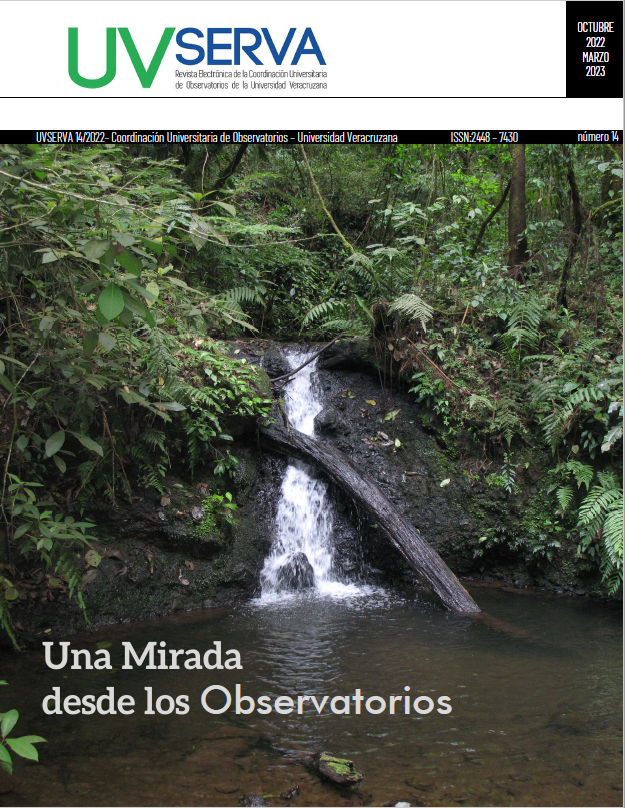Abstract
Objective: To explore the barriers that lead women with cervical cancer to non-adherence to treatment from the Health Beliefs Model. Methodology. Qualitative study aimed at women diagnosed with cervical cancer, a semi-structured interview was conducted with delimited axes of analysis and conceptual categories. Results. The idea of imminent death, the physical and psychological exhaustion of the treatment, the anger towards the disease and the economic situation are the arguments recovered from the interviews, causing adherence to treatment to be compromised. Conclusions. The perceived mechanicalness of the idea of obeying the doctor, the severity/seriousness of the disease and ideas about the cost-benefit of the treatment are elements that make it impossible to adhere to it.
References
Becker, M.H. (1974). The Health Belief Model and Sick Role Behavior. Health Education Monographs. 2(4), 409-419. https://doi.org/10.1177%2F109019817400200407
Organización Mundial de la Salud OMS. (2008). Boletín epidemiológico regional. Plan de acción para la prevención y el control de cáncer cervicouterino 2008. https://bit.ly/3RdO7FA
Castellano-Bentancur, G.S., Heinzen, J., y Nión-Celio, M. S. (2014). Creencias populares en salud materna. Revista De Salud Pública, 16(3), 9–20. https://doi.org/10.31052/1853.1180.v16.n3.6955
Chávez-Martínez, F.J., Romero-Pérez, T., González-Marinello, S., Lence-Anta, J., Santos-Martínez, T. (1997). Riesgo de Morir por Cáncer en Cuba. Revista cubana de oncología. 13(1), 5-11. https://pesquisa.bvsalud.org/portal/resource/pt/cum-16180
Derogatis, L.R., Morrow, G.R., Fetting, J., Penman, D., Piasetsky, S., Schmale, A.M., Henrichs, M., Carnicke, C.L. (1983). The prevalence of psychiatric disorders among cancer patients. National Library of Medicine. 249(6), 751-763. doi: 10.1001/jama.249.6.751. https://pubmed.ncbi.nlm.nih.gov/6823028/
Ehrenzweig-Sánchez, Y. (2007). Modelos de cognición social y adherencia terapéutica en pacientes con cáncer. Avances En Psicología Latinoamericana, 25(1), 7-21. https://revistas.urosario.edu.co/index.php/apl/article/view/554
Herrera, K. y Nión-Celio, M.S. (2019). El cáncer cervicouterino según las creencias de las mujeres de Jinotega, Estelí y Chinandega, Nicaragua. Psicología Actual, la modernización de la ciencia. 6(1). 8-20. https://www.redalyc.org/articulo.oa?id=539557206022
Montañés, M. (2001) Dinámica, funcionamiento y contenido de las entrevistas individuales y grupales. Practicas locales de creatividad social. 18(6) 115-134. https://dialnet.unirioja.es/servlet/articulo?codigo=838434
Murillo, M. y Alarcón-Prada, P. (2006). Tratamientos psicosomáticos en el paciente con cáncer. Revista Colombiana de Psiquiatría. 35(1), 99-111. http://www.scielo.org.co/pdf/rcp/v35s1/v35s1a07.pdf
Palacios-Espinosa, X. y Pérez-Acosta, A. (2017). Evolución del concepto de psicología de la salud. [Tesis de maestrìa, Escuela de Medicina y Ciencias de la Salud, Colombia]. https://bit.ly/3nL3iIU
Prieto A. (2004) Psicología oncológica. Revista profesional española de terapia cognitivo-conductual 2(2).107-120.
Salvador, A., Ochoa-Carrillo, F.J., Guerra-Chávez, H.G., Mulier-Rojas, Y.A., Galindo-Vázquez, O. y Zapata-Isidoro, M.R. (2011). Adherencia terapéutica del paciente con cáncer; algunos factores. (perspectiva del Oncólogo). Gaceta Mexicana de Oncologìa. 10(3), 136-142. https://bit.ly/3yQza4Y
Schneider-Hermel, J., Pizzinato, A., y Calderón-Uribe, M. (2015). Mujeres con cáncer de mama: apoyo social y autocuidado percibido. Revista De Psicología, 33(2), 439-467. https://doi.org/10.18800/psico.201502.008
Secretaría de Salud [SSA]. (2015). “Panorama mundial y nacional” en Programa de acción específico: Prevención y control del cáncer cérvico de la mujer 2013-2018. Secretaría de Salud. https://www.gob.mx/salud/acciones-y-programas/cancer-de-cuello-uterino
Secretarìa de Salud [SSA]. (2015). “Información estadística” en Programa de acción especifico Prevención y Control del cáncer de la mujer 2013- 2018. información estadística. México. https://www.gob.mx/salud/acciones-y-programas/informacion-estadistica
Trejo, F. (2012) Fenomenología como método de investigación: una opción para el profesional de enfermería. Revista de Enfermería Neurológica. 11 (2). 98-101. http://www.medigraphic.com/pdfs/enfneu/ene-2012/ene122h.pdf

This work is licensed under a Creative Commons Attribution-NonCommercial 4.0 International License.
Copyright (c) 2022 Guadalupe Camarillo Guzmán, Dr. Carlos Flores Pérez, Dra. Sandra Vázquez Hernández, Dr. Luis Antonio Botello Mendoza, Dra. Gloria López Mora , Dra. Blanca Estela Totomol Yoval


